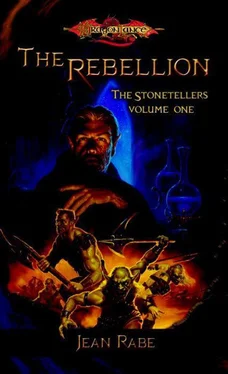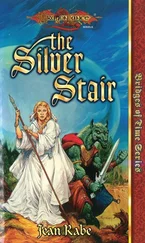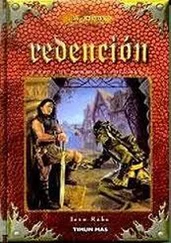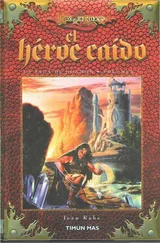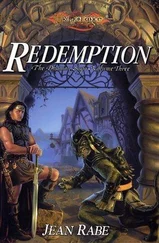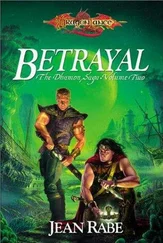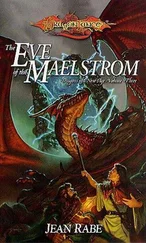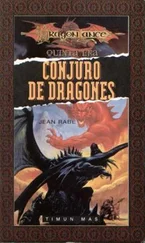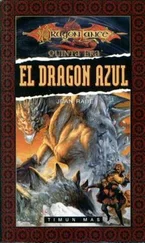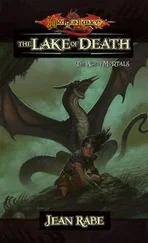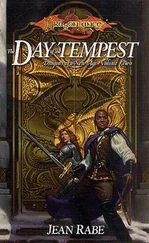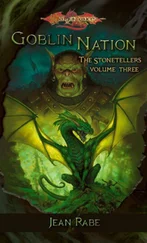Jean Rabe - The Rebellion
Здесь есть возможность читать онлайн «Jean Rabe - The Rebellion» весь текст электронной книги совершенно бесплатно (целиком полную версию без сокращений). В некоторых случаях можно слушать аудио, скачать через торрент в формате fb2 и присутствует краткое содержание. Жанр: Фэнтези, на португальском языке. Описание произведения, (предисловие) а так же отзывы посетителей доступны на портале библиотеки ЛибКат.
- Название:The Rebellion
- Автор:
- Жанр:
- Год:неизвестен
- ISBN:нет данных
- Рейтинг книги:5 / 5. Голосов: 1
-
Избранное:Добавить в избранное
- Отзывы:
-
Ваша оценка:
- 100
- 1
- 2
- 3
- 4
- 5
The Rebellion: краткое содержание, описание и аннотация
Предлагаем к чтению аннотацию, описание, краткое содержание или предисловие (зависит от того, что написал сам автор книги «The Rebellion»). Если вы не нашли необходимую информацию о книге — напишите в комментариях, мы постараемся отыскать её.
The Rebellion — читать онлайн бесплатно полную книгу (весь текст) целиком
Ниже представлен текст книги, разбитый по страницам. Система сохранения места последней прочитанной страницы, позволяет с удобством читать онлайн бесплатно книгу «The Rebellion», без необходимости каждый раз заново искать на чём Вы остановились. Поставьте закладку, и сможете в любой момент перейти на страницу, на которой закончили чтение.
Интервал:
Закладка:
Moon-eye snarled something unintelligible. He’d called to the guards several times, trying to get one of them to summon a Skull Knight to heal his mate. There were other goblins injured worse, but Moon-eye didn’t care about them.
“Moon-eye’s Heart hurts,” he said, stroking Graytoes’s arm.
“When the skull men are done with the knights, one will come here,” Direfang said.
“Promise?”
Direfang scowled. “No.” He patted the top of Graytoes’ head then worked his way through the mass of goblins so he could stand at the rail and watch the funeral pyre. He wondered why the Dark Knights chose to bury their dead and forever trap their spirits beneath the earth.
But Direfang had served the Dark Knights for many years and knew that was their way, though he never understood the reasons for it. It had something to do with their gods, the burying and corpse rotting. Perhaps their gods, with their cruel senses of humor, required the barbaric ritual. Direfang had never asked the Dark Knights about it. He was content that the knights, even though they did it unknowingly, properly observed the custom of goblinkind by burning dead slaves.
The goblin and hobgoblin clans had different ways of disposing of their dead, though all accepted the burning that took place in Steel Town. In fact, most of the clans Direfang was familiar with preferred the pyre. Then, after the ashes were cold, friends and relatives of the deceased traditionally would break and scatter any remaining bones, trying to leave nothing intact. Similar things would be done in Steel Town, though not by any ritual, and likely not with relatives involved. The hobgoblin knew the Dark Knights would order the slaves to rake the bones flat and cover them with earth, so the area would not look unsightly. That’s what they had done seven years past, when a wasting disease swept through one of the pens and killed more than one hundred goblins before the Skull Knights could stop the malady.
Direfang had been among those who raked the bones then, and he’d volunteered ever since that time to spread the ashes of the occasional lone slave who died because of a beating or mine accident or old age.
The clan Graytoes hailed from preferred to leave its bodies to rot in the woods, bestowing the flesh on carrion birds and the insects, and knowing that larger predators would rip up the corpses, also thereby separating the bones.
Moon-eye was taken from his clan at such a young age that he had no memories of the traditions they had practiced.
Saro-Saro’s clan had been known for eating its dead; that was the only clan Direfang was aware of with such a predilection, though he was certain there were others. And that clan, too, scattered the remains of what was not consumed.
Hobgoblin clans on the coasts usually gave the bodies to the seas, knowing fish and other creatures would feast on the dead. Those inland typically cleaved off a limb or the head as a remembrance for relatives, leaving the bodies for scavengers and returning to break and scatter and spread the bones. Larger clans ground the bones and used them in pottery or gardens, honoring the dead by letting them nurture the living.
Some of the oldest goblin clans used the rib bones of their dead warriors to fashion pieces of armor, believing that they gained strength by keeping the memory of their heroes and ancestors close. Mudwort once told Direfang that her clan used the leg bones of the dead to beat ceremonial drums and used skulls for bowls. Finger bones were sharpened into fishhooks, for her clan favored extensive use of tools and relied on lakes and rivers for their livelihood. Mudwort knew of many other curious practices concerning the dead but did not speak much about them. She did, from time to time, laugh when the Dark Knights buried one of their own.
No goblin body should be left to rot beneath the earth. And none should be left intact or unbroken, all the clans agreed. There should be nothing for the spirit to return to.
Enemies were another matter. When clan warred against clan, which was rare, or when they fought tribes of kobolds and gnolls, the goblins tried to dig deep and bury beneath the earth the enemies they killed so their spirits would be trapped. It was another way to dishonor their foes.
All the clans Direfang knew of were certain that goblin and hobgoblin spirits-once separated from their dead bodies-would return to Krynn to begin another life.
Everything returned. Nothing was wholly lost.
That explained why Direfang and the others had memories that came to them mysteriously or why they instinctively knew how to do certain things.
It also explained why the bodies had to be destroyed. A spirit would first try to return to its old form, and if that form was whole, regardless of its state of decay, the spirit would lodge there. It would be trapped for decades upon decades in the husk of its former self. And when time finally turned the bones to dust, the spirit would dissipate, lost and tortured eternally.
But if the spirit could not return to its old form because that form had been burned or eaten and the bones strewn about and broken, it would be born again into a new body. Direfang wondered if the spirit of one of the goblins who died in the mine and was burned this night would emerge as Graytoes and Moon-eye’s child. He hoped not. He hoped the spirits freed that night would be born to clans well beyond Steel Town and never see the inside of a mountain.
No one knew how long a spirit hovered before returning or how many times a spirit returned.
He wondered how old his own spirit was.
Direfang considered some of the goblins in the camp to be old souls: Mudwort, Saro-Saro, Bentclaw, Hurbear, and a few of those on the pyre. Perhaps those souls in long-ago times believed in gods such as Chislev and Takhisis and would have understood the Dark Knights’ silly burial practices. But the goblins believed those things no longer-they were more sagacious.
The goblins and hobgoblins in Steel Town, and in the tribes and clans throughout Neraka, did not revere any of Krynn’s gods. They recognized that the gods existed and that they capriciously meddled in mortals’ affairs. But goblinkind did not believe that paying homage to any god would send their spirits to some glorious afterlife. Neither did the goblins care to spend their afterlife with any of those gods. Such a fate would be more akin to damnation than salvation.
The gods never did anything good for goblinkind. They never made goblins and hobgoblins and their bugbear cousins strong enough to stand up to Dark Knights and ogres and minotaurs. They never kept goblinkind from being exploited and mistreated by practically all the world’s races.
They never kept them from being ripped from their families and made slaves, from being whipped and practically starved, from being forced to mine ore for cruel taskmasters such as the Dark Knights of Hell Town.
And they hadn’t prevented the earth from shaking and collapsing shafts down on top of goblin heads.
So because the gods had ignored goblinkind and deemed them worthless of their attention, goblinkind in turn ignored the gods and deemed them worse than useless.
Direfang felt mildly sorry for the Dark Knights, yoked as they were to their foolish gods and rituals, burying their dead so the spirits would be trapped in husks rotting beneath Steel Town’s ugly earth. He wondered how many more years he would have to spend in the camp before he died and was thrown into the fire. He watched the flames dance up the bodies and hoped he’d be lucky enough not to be trapped in the mine.
“Cold night, warm fire,” a goblin at his side observed. “Good burn.”
“Yes,” Direfang admitted. “It is a good burn. It will keep the spirits away.”
“Away from the mine,” the goblin said. “Away from this hell.”
Читать дальшеИнтервал:
Закладка:
Похожие книги на «The Rebellion»
Представляем Вашему вниманию похожие книги на «The Rebellion» списком для выбора. Мы отобрали схожую по названию и смыслу литературу в надежде предоставить читателям больше вариантов отыскать новые, интересные, ещё непрочитанные произведения.
Обсуждение, отзывы о книге «The Rebellion» и просто собственные мнения читателей. Оставьте ваши комментарии, напишите, что Вы думаете о произведении, его смысле или главных героях. Укажите что конкретно понравилось, а что нет, и почему Вы так считаете.
